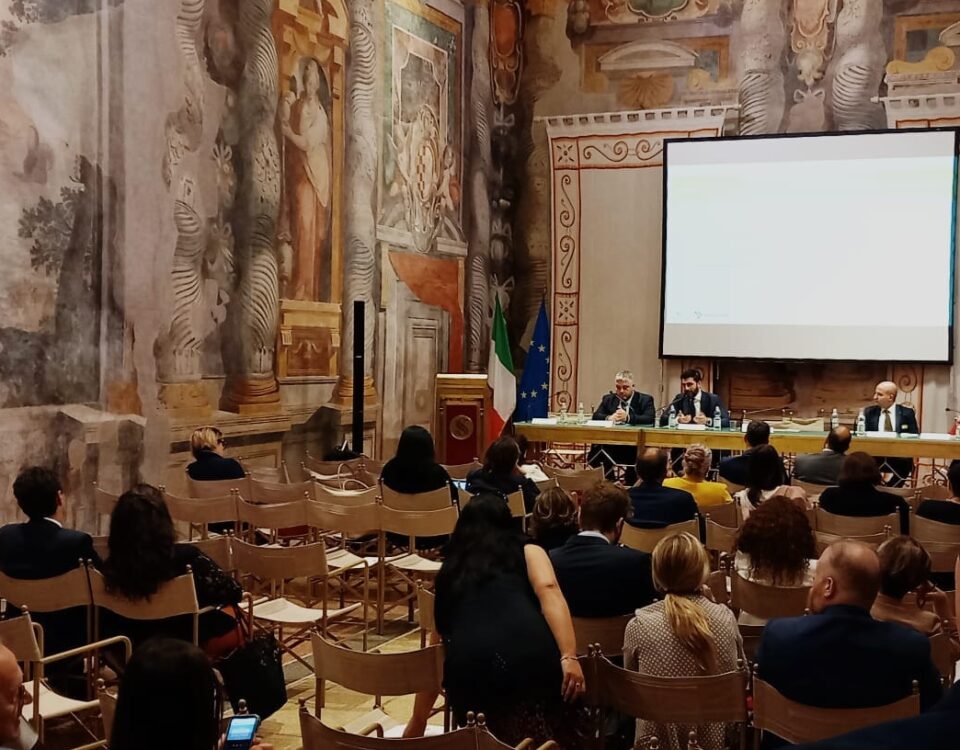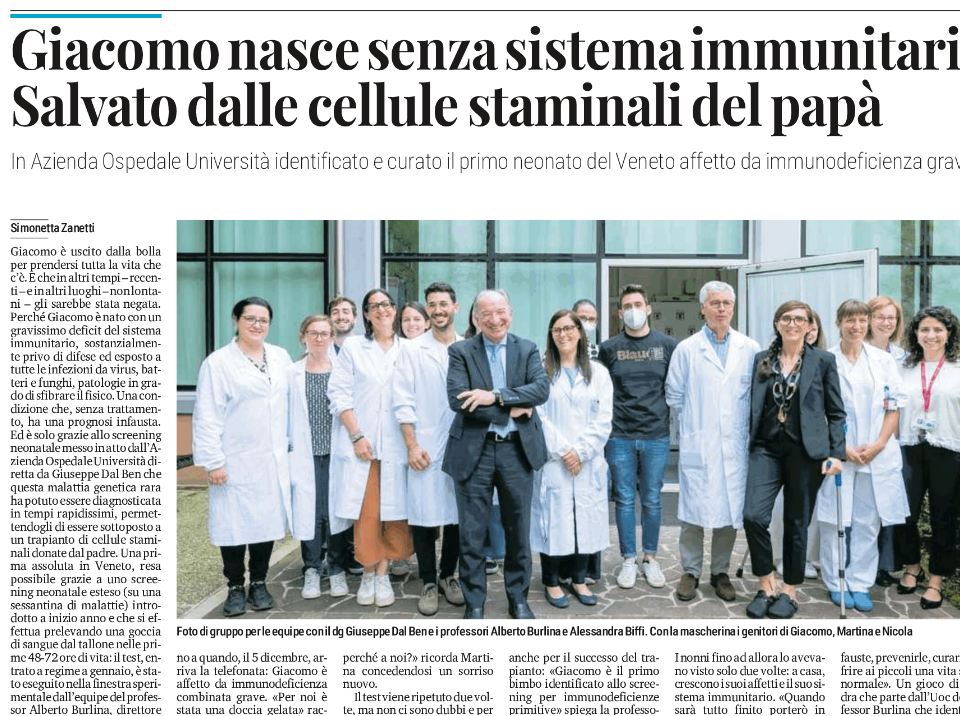Farmaci: Puglia: dal 1° gennaio 2005 novità su ticket farmaceutici
21 Dicembre 2004Cellule natalizie
23 Dicembre 2004Super scanner analyzes brain function
“
Machine ‘revolutionary’ for medical community
By Julie Clothier for CNN
Wednesday, December 22, 2004 Posted: 1102 GMT (1902 HKT)
(CNN) — The world’s most powerful magnetic resonance imaging (MRI) machine can produce higher-resolution images in less time, helping doctors prescribe the most suitable medication to stroke patients.
The one-of-a-kind machine, built by GE Healthcare, has a 9.4-tesla magnet and was recently unveiled at the University of Illinois, Chicago.
A tesla is a large measuring unit of magnetic strength.
The super-strength MRI scanner will be used in medical research.
David Weber, of GE Healthcare, told CNN the ultra-high magnetic fields enabled doctors to see how the brain metabolized, whereas lower tesla MRI machines just looked at the anatomy of the brain.
“The higher the magnet, the more information you can learn about the brain, which contributes to a better level of healthcare,” he said.
Most MRI scanners in hospitals are 1.5 or 3 tesla and are used to detect brain tumors and other anatomical abnormalities.
The magnet will enable researchers to detect signals from sodium, phosphorus, carbon, nitrogen, and oxygen — the metabolic building blocks of brain function — enabling them to look in detail at memory, vision and language.
“Not only can you see the anatomy of the brain, you get robust information about the function of the brain and other organs and how they are functioning,” Weber said.
He said the higher magnetic fields would allow doctors to examine more subtle aspects of the brain, and would allow them to monitor patients’ — including stroke sufferers — response to different treatments.
“It will give them information about why a particular drug does or doesn’t work on some people,” said Weber.
He said the main advantage of the larger magnet was the speed at which it could read the information.
Weber said MRI scanners cost approximately $1 million per tesla.
“It’s the strongest MRI ever built. It’s at the theoretical limits with today’s magnetic technology. It’s the highest one we could build with material available today,” he said.
Dr. Keith Thulborn, director of the university’s Center for Magnetic Resonance Research, who will conduct research associated with the machine, said it was as “revolutionary to the medical community as the transition from radio to television was for society.”
“

The one-of-a-kind machine, built by GE Healthcare, has a 9.4-tesla magnet and was recently unveiled at the University of Illinois, Chicago.
A tesla is a large measuring unit of magnetic strength.
The super-strength MRI scanner will be used in medical research.
David Weber, of GE Healthcare, told CNN the ultra-high magnetic fields enabled doctors to see how the brain metabolized, whereas lower tesla MRI machines just looked at the anatomy of the brain.
“The higher the magnet, the more information you can learn about the brain, which contributes to a better level of healthcare,” he said.
Most MRI scanners in hospitals are 1.5 or 3 tesla and are used to detect brain tumors and other anatomical abnormalities.
The magnet will enable researchers to detect signals from sodium, phosphorus, carbon, nitrogen, and oxygen — the metabolic building blocks of brain function — enabling them to look in detail at memory, vision and language.
“Not only can you see the anatomy of the brain, you get robust information about the function of the brain and other organs and how they are functioning,” Weber said.
He said the higher magnetic fields would allow doctors to examine more subtle aspects of the brain, and would allow them to monitor patients’ — including stroke sufferers — response to different treatments.
“It will give them information about why a particular drug does or doesn’t work on some people,” said Weber.
He said the main advantage of the larger magnet was the speed at which it could read the information.
Weber said MRI scanners cost approximately $1 million per tesla.
“It’s the strongest MRI ever built. It’s at the theoretical limits with today’s magnetic technology. It’s the highest one we could build with material available today,” he said.
Dr. Keith Thulborn, director of the university’s Center for Magnetic Resonance Research, who will conduct research associated with the machine, said it was as “revolutionary to the medical community as the transition from radio to television was for society.”
from CNN.com




